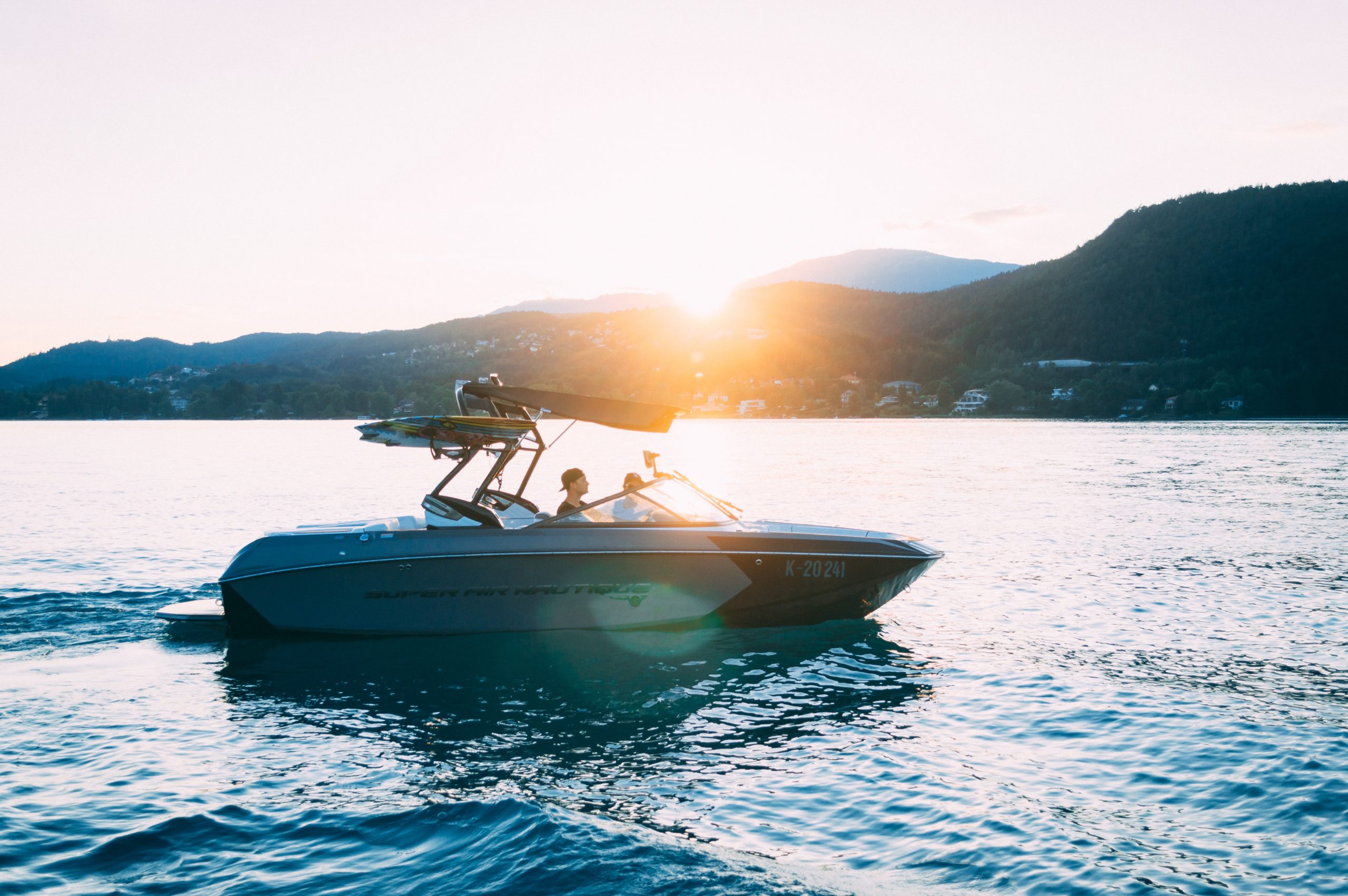What do I do if my boat ran out of gas?
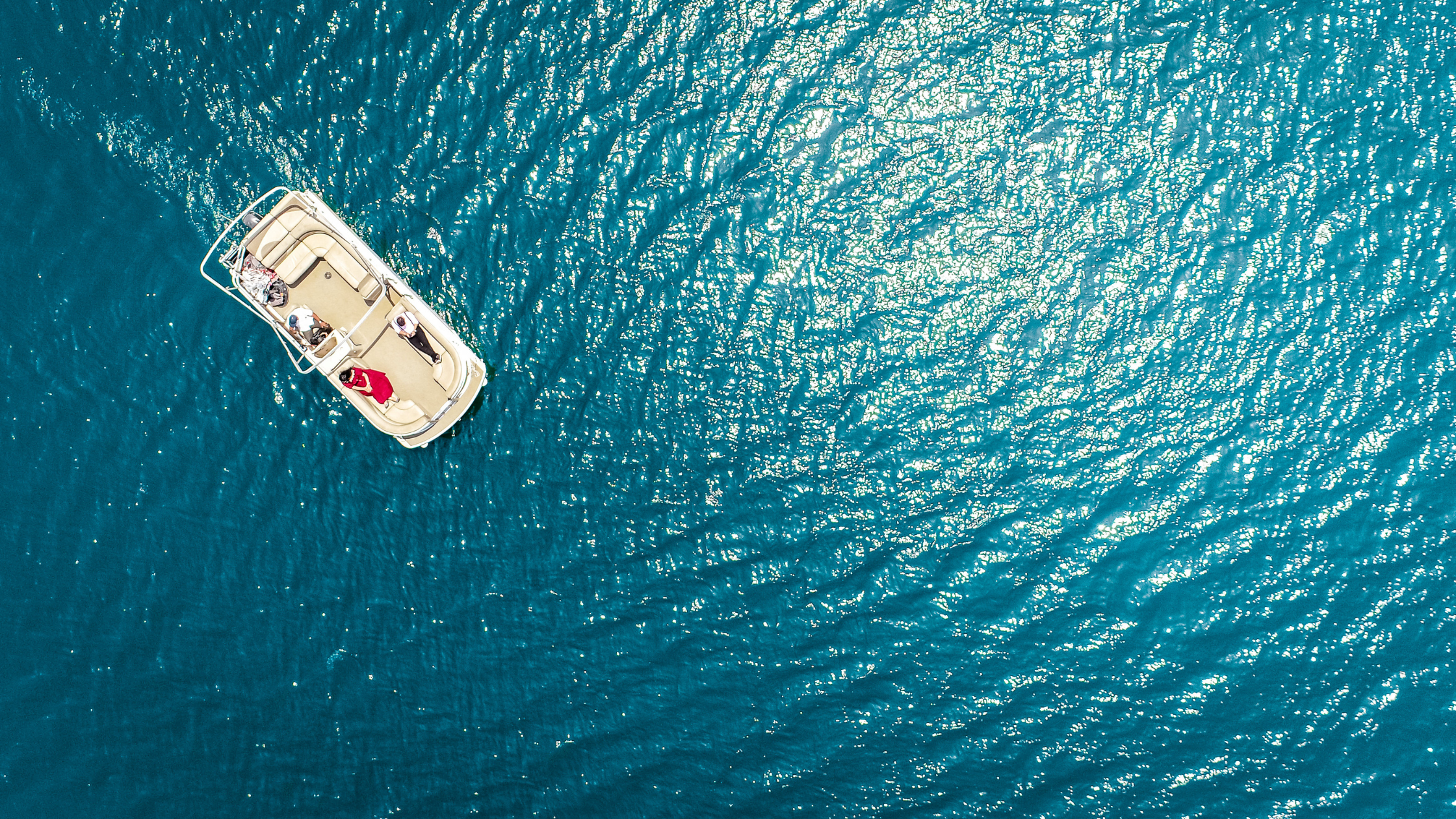
In our new series of helpful “what if” scenarios we offer some guidance for when things go wrong. Today’s helpful tip answers “What do I do if my boat ran out of gas while out on the water?”
By Jason Andre
So I have a couple that I’m friends with…I won’t name names, but they were out enjoying a beautiful cool day this past weekend on their new boat. It’s a used new boat, but new to them. It came with a faulty gas tank, so they had parked a temporary replacement under the center console with no working fuel gauge and was opaque making it it virtually impossible to tell how much fuel was in it. They hadn’t planned on a long day on the water, and dad had put gas in it recently. They were just taking a little pleasure cruise out and back with some friends. They clearly were having a great day when they dropped the friends off at the dock and ran back out to enjoy more of the lovely day. While covering some decent ground on the waterway, and a foot propped up on the tank, it began to rock back and forth a little bit. When even partially full, the tank does not rock back and forth at all. Confident in the amount of fuel they started out with, the thought occurred to the husband, “Oh, I did take the boat out the other day for awhile, and we did just cover a lot more ground than originally planned today. We should probably check the tank.” They slowed to stop and bent down to discover a light splash at the bottom of the tank as it easily moved back and forth and lifted off the deck.
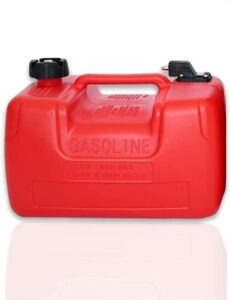
Let’s put this information in perspective. If you have 75 miles to cover in a day, at 7.5 knots it will require 10 hours of running time and will consume 30 gallons. If you increase your speed to 9.0 knots you might arrive about 90 minutes sooner and will consume roughly 90 gallons.
– Steve Zimmerman, Zimmerman Marine
The first thing they did was decide to go slow and try to idle speed it to the nearest marina that had fuel…and thought, “No, let’s gun it! We’ll get there faster.” Let’s pause here for a second…
First…It’s new boat and they are not familiar with the GPH they are burning, so that’s forgivable…maybe…
Second…Knowing they were going to be out all day, and even coming back to the dock to drop off some friends before venturing back out without checking was the second mistake.
Third…Fuel efficiency. Without getting into the scientific nitty gritty charts, which someone else has already done, just know that at the start, a one to two knot increase in speed can double or even triple your fuel intake. Let me say that again…you will burn 200-300% more fuel with only a 2 knot speed difference. That curve flattens out the faster you go on plane, but it keeps getting worse, and the energy needed to get on plane is far more than actually running at that speed.
So, they gun it…the boat begins to get up on plane and almost immediately sputters, loses power, and inevitably conks out. Now, one of my first questions was, “Don’t you have Sea Tow?” To which they replied, “Yeah, but…”
Before we get to the big “But” where the story gets really fun, let us drive this little point home. Whether it’s Sea Tow or Tow Boat US, GET YOURSELF A TOWING MEMBERSHIP! Even if you never need it, the peace of mind and knowing you’ll avoid nightmare scenarios is worth it. They cover towing, fuel, and even trailering. Even if you only use it once, it pays for itself the first time, and potentially three times over. It may even qualify you for a discount on your boat insurance. Your Marine Insurance may even provide towing service included in your policy…
now back to our story…


”BUT we called my brother and told him that our boat ran out of gas and we’re at buoy 94 on the Intracoastal…” They then put the trolling motor down in an effort to keep moving forward. Not a terrible idea, but when giving your location to someone to come help, it’s a better idea to just throw an anchor and stay in one place, unless possibly you are in an emergency situation (weather, injury, etc.). This was not an emergency…
Big brother – I happen to know their brother well, and let’s just say he’s “Qualified” himself enough times for them to know better. Alas, big brother generously offers to put his boat in grab a fuel canister from the garage and come to the rescue. After some time passes, they get a phone call from big brother, “Hey, soooo I’m at buoy 98. I just ran out of fuel.”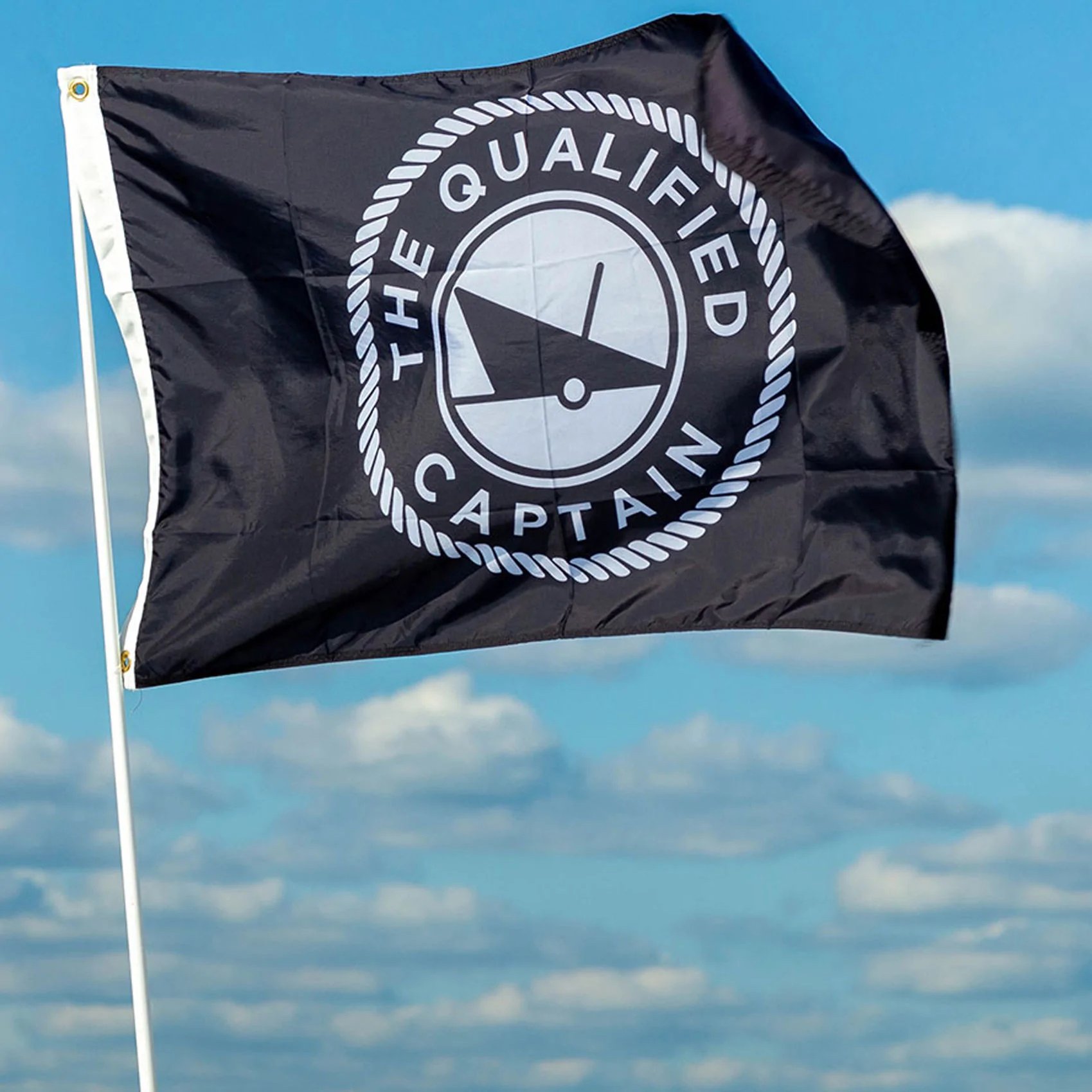
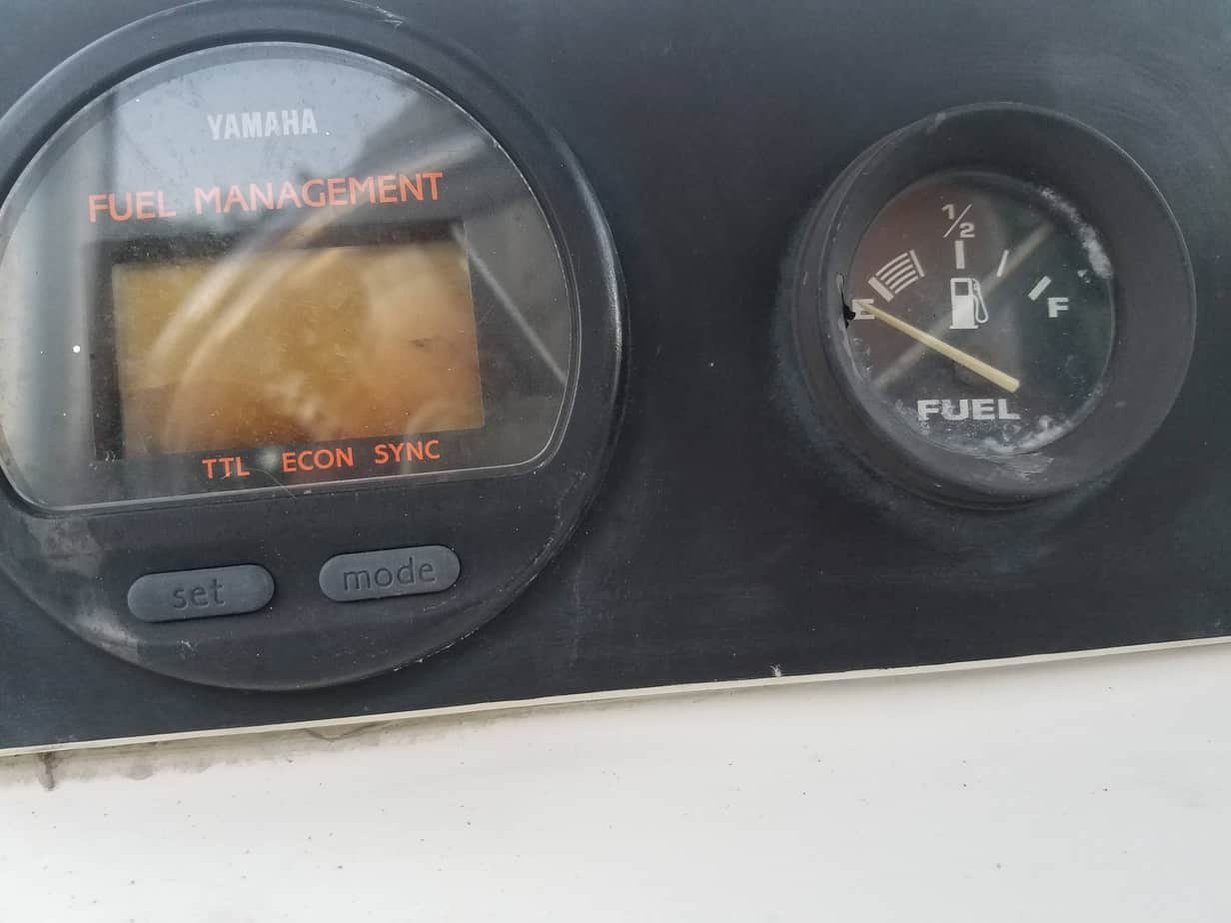 For our next act in this comedy of errors:
For our next act in this comedy of errors:
Brother eventually arrives with a partial can of gasoline, that is even more partial now. Fuel is exchanged and both boats are moving onward and upward to the closest marina. They glide along at idle speed this time hopefully having learned their lesson, but as it turns out, brother forgot his wallet. You’re welcome to put your palm to your face…I’ll wait…
Thankfully they had their wallet and were able to fill both boats and return home safely. There were a number points in time during this story where things could have been solved much more easily with a little bit better planning and preparation, a little bit of knowledge, taking advantage of their Sea Tow membership, etc. Hopefully, some some good lessons were learned and we now have several great takeaways.

So what should you actually do if you run out of fuel on your boat?
- Don’t Panic – Stay calm and assess the situation, and once stable, just try to remain calm, comfortable and aware of your surroundings.
- Put life jackets on – Even if you’re not in a compromising situation it’s better to be safe than sorry.
- Lower your anchor – Maintain position and remain in place so that towing services or Coast Guard can easily find you.
- Call for professional help – Call Sea Tow/Tow Boat US and if it’s a true emergency get on emergency Channel 16 on your VHF radio and hail the Coast Guard. You will need to provide GPS coordinates of your location in Latitude and Longitude. If you don’t know Lat/Long, look your channel marker numbers or landmarks to describe your position.
- Turn off battery to conserve electricity – Once you’ve made contact, conserve your battery for restarting your engine, or hailing distress calls if conditions deteriorate.
Planning ahead
- Provide Someone a Float Plan – We are big advocates of a Float Plan. Worst case scenario, motor dies, electrical dies, and phone falls in the water. Someone on land should know where you were going and when you are supposed to be back, so that in the case of an emergency and you can’t be contacted, they can reach out to emergency services on your behalf if you don’t return.
- Know your vessel – Have a working knowledge of your boat and consumptions levels as well as navigation plan for the day (where and how far you will be going). If it changes, reassess and provide changes to your float plan to your onshore contact.
- Fuel gauge – Boat fuel gauges are notoriously inaccurate to begin with. Most captains plan in thirds: 1/3 To get out, 1/3 to get home, and 1/3 for margin of error, but never trust your fuel gauge even if it is working.
- Bring extra fuel – It never hurts to have a little backup canister. Perhaps your fuel gauge doesn’t work, you haven’t fixed it yet, or you’ve spent more time on the water than originally planned.
- Have a Sea Tow/Tow Boat US membership – They most likely include fuel delivery, jump starts, prop disentanglements (no diver), parts delivery, covered ungroundings; and that’s just on-water services.
- Have an anchor ready – Even if you don’t plan on using one that day, if you’re in a strong current, in the ocean, or somewhere that could eventually lead to a dangerous or compromising situation, always have an anchor at the ready in case you break down.
- Sight and Sound Devices – Even though it’s required some people fail to keep a flasher, flair, or whistle on board, but they may save your life one day.


